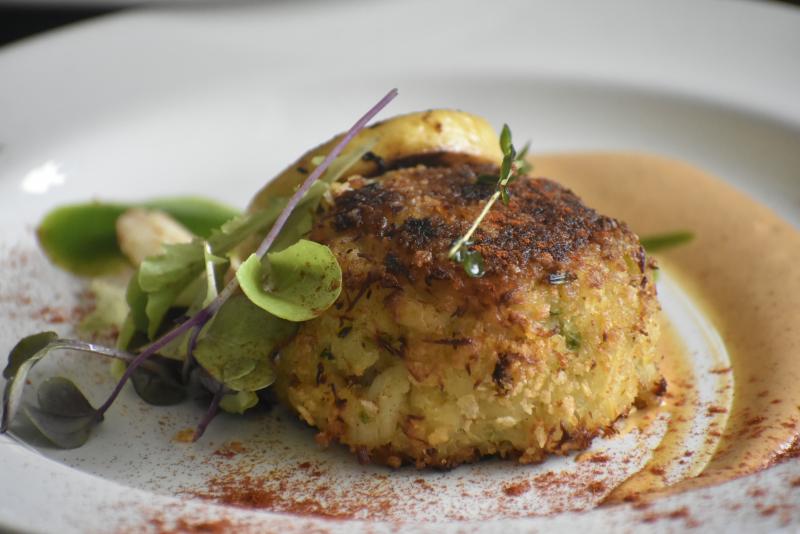
For many reasons, including climate change, coral reefs are dying around the world. But scientists say some crabs eat coral-choking seaweed and algae and may help with restoring coral reefs.
AILSA CHANG, HOST:
Coral reefs are dying around the world. Climate change is one big reason. It's bleaching corals. But climate change is also helping fuel the growth of the coral's ancient enemy, seaweed.
ARI SHAPIRO, HOST:
See; as corals die, seaweed takes over. And, like weeds in your garden, seaweeds can crowd out new corals. Mark Butler is a research professor at Florida International University.
MARK BUTLER: They also produce chemicals that actually can affect the coral's ability to resist disease. They actually can affect coral reproduction through the chemicals these algaes produce.
CHANG: Well, as any gardener will tell you, to fight weeds, you need a weed eater. Enter the Caribbean king crab.
BUTLER: This crab really eats primarily algaes and, in fact, will eat algaes that a lot of other coral reef species, particularly fishes, will turn their noses up, so to speak. They won't eat.
SHAPIRO: In fact, the crabs will eat so much algae that Butler got an idea. Why not bring back more of these native crabs to seaweed-choked reefs in the Florida Keys?
BUTLER: And what we discovered after a year - we looked at these data, and the results really were transformative. They were just amazing.
CHANG: You see; the crabs had mowed down more than half the seaweed. Four times as many baby corals were growing compared to reefs without crabs. And reef-dwelling fish were swimming back, too. The details appear today in the journal Current Biology.
SHAPIRO: Tom Moore is the Coral Reef Restoration Program manager at the National Oceanic and Atmospheric Administration, which helped fund the work. And he says this discovery is a game-changer that is also scalable.
TOM MOORE: Because not only are the crabs really efficient at what they do in terms of clearing the algae. They're actually really easy to grow. We can go probably in relatively short order from producing just maybe hundreds for experimental purposes to being able to produce tens of thousands for operational restoration purposes.
CHANG: Moore says they won't introduce the crabs outside their native range. But in the Caribbean, at least, these underwater gardeners could give corals a fighting chance. Here's Butler again.
BUTLER: I can honestly say in the 40 so years that I've been working in coastal, tropical marine environments that this is really one of the most astounding results that we have got. And it gives me more hope than almost anything I've done that this can help a lot.
SHAPIRO: But he says to save corals worldwide will require much more than just crabs. We'll need to stop pollution, overfishing and reverse the threat of climate change.
(SOUNDBITE OF MUSIC)
Copyright © 2020 NPR. All rights reserved. Visit our website terms of use and permissions pages at www.npr.org for further information.
NPR transcripts are created on a rush deadline by Verb8tm, Inc., an NPR contractor, and produced using a proprietary transcription process developed with NPR. This text may not be in its final form and may be updated or revised in the future. Accuracy and availability may vary. The authoritative record of NPR’s programming is the audio record.
December 11, 2020 at 03:56AM
https://ift.tt/3qGBsOh
More Crabs!: Scientists Discover A Way To Help Dying Coral Reefs - NPR
https://ift.tt/2MkGRbk
Crab

No comments:
Post a Comment